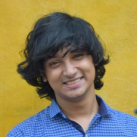Michael Schumacher’s daredevil style of driving, seven world championships and mass appeal beyond the sport means it is easy to make a case for him as F1’s greatest ever driver.
Michael Schumacher last raced in an F1 car in 2012 in Brazil, when he finished seventh in his Mercedes. It was hardly the ideal send-off for the sport’s joint-most successful driver in terms of world championship wins. The last of which had come 8 years prior in 2004. Nevertheless, Schumacher’s legacy in the sport was such that even his relatively sombre three-year comeback with Mercedes from 2010-12 was nothing but a slight blemish. It was a career that had seen take on a host of legendary names in the sport. He emerged victorious every single time. From the 1990s to mid-2000s, Schumacher’s was the name fans most associated with the sport.
Born in Huerth, North Rhine-Westphalia on January 3, 1969, Schumacher’s father was a brick layer. He built his son a go-kart from discarded parts that Michael would use to win his maiden club championship.
Eventually Michael needed the support of sponsors – in this case local businessmen – to continue his racing career. He remained steadfast, competing in karting and later Formula 3000 and Le Mans as well as the World Sports-Prototype Championship in 1990. One year later, he made his F1 debut for Eddie Jordan’s Jordan-Ford team before being signed by Benetton.
Four points from six races was his record during his debut season but 1992 saw him make the world take notice of his talent. He would finish third in the driver’s championship, including a third-place finish at Mexico and a win at Belgium.
1993 was less successful but he still registered a win at Portugal. There were nine podium finishes but he also retired seven times as he finished fourth in the standings.
1994 saw him win his first title in interesting circumstances. The death of Ayrton Senna at San Marino that year dominated the sport. But, so did McLaren and Benetton’s alleged flouting of regulations. Schumacher, though, was unfazed and went into the final in Australia race a point ahead of rival Damon Hill.
On lap 36 of the race Schumacher had crashed into a wall, leading Hill to try and overtake. However Schumacher re-joined the race just as Hill was near him and the collision saw both retire and the German win a controversial maiden title, which he dedicated to his idol Senna.
1995 saw the rivalry between him and Hill carry on and there were several clashes that took place but Schumacher ended the season 33 points ahead of his rival and became the youngest two-time champion in F1 history.
Schumacher joined Ferrari in 1996 and the match was seen in many quarters as one that would end Ferrari’s barren driver’s championship run, as they last won a title in 1979. But 1996 saw Hill win the title as Schumacher struggled in a Ferrari not equipped for a title challenge. He won three races but it was clear there was work to be done.
Ross Brawn and Rory Byrne, instrumental to Benneton’s and Schumacher’s success, joined Ferrari in 1997. Schumacher engaged in a back-and-forth title battle with Jacques Villeneuve of Williams. The season-ender at Spain saw another bit of controversy; Schumacher attempted to cause a clash with Villeneuve but ended up having to retire from the race, with the Canadian winning his first and only title.
1998 saw another back-and-forth, this time with the McLaren of Mika Hakkinen. Ferrari started the season slow but clawed back through car improvements and a good run of form. Ultimately it wasn’t enough as Hakkinen won the last two races to clinch the championship.
1999 was a complicated year for Schumacher as he suffered a crash at the British GP that broke his leg and had him out of action for 98 days. Second driver Eddie Irvine became an unlikely challenger to Hakkinen and upon Schumacher’s return, he played the supporting role in a bid to aid Ferrari break their barren run.
But while Ferrari claimed the Constructor’s championship, Hakkinen won his second and final world title in 1999.
2000 was the year that finally saw Ferrari win the driver’s title but it was a closely contested battle with Hakkinen once again. However, 2001 and 2002 saw Schumacher win the title with minimal fuss.
2003 once again brought about a tightly-contested battle that involved Schumacher, Kimi Raikkonen of McLaren and Williams’ Juan Pablo Montoya and Ralf Schumacher, Michael’s younger brother.
The battle finally came down to Raikkonen and Schumacher in Japan. Schumacher needed only a point to win the title. Raikkonen needed a win and for the German to not gain any points. Schumacher finished 8th, meaning he won the title by 2 points despite Raikkonen’s win.
2004 was the epitome of Ferrari’s dominance – and indeed, the end of it in the modern era. Schumacher won five of the first six races and 12 of the first 13 overall. This meant he won the championship with 13 wins from 18 races and a then-record 148 points.
Schumacher and Ferrari failed to win the title in 2005 and 2006 as Renault and Fernando Alonso emerged victorious. He would then retire from the sport at the end of 2006 but remained active with Ferrari and almost made a comeback in 2009 with the side as a replacement for the injured Felipe Massa.
His comeback came a year later with Mercedes but it was a forgettable one that yielded no wins and just the sole podium finish at the European GP in 2012. Nevertheless, his legacy as one of the greatest to do it remains intact.
He inspired a number of German drivers, including four-time world champion Sebastian Vettel, and made the sport popular in Germany and around the world.

2023 Formula E Hyderabad ePrix: Preview, Dates, Tickets, Live Streaming, all you need to know
